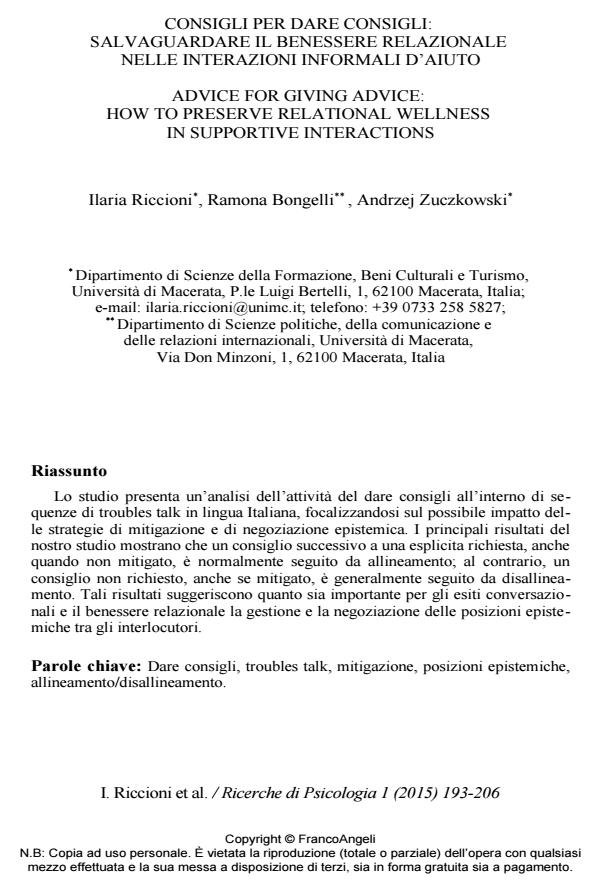Advice for giving advice: how to preserve relational wellness in supportive interactions
Journal title RICERCHE DI PSICOLOGIA
Author/s Ilaria Riccioni, Ramona Bongelli, Andrzej Zuczkowski
Publishing Year 2015 Issue 2015/1
Language Italian Pages 14 P. 193-206 File size 216 KB
DOI 10.3280/RIP2015-001012
DOI is like a bar code for intellectual property: to have more infomation
click here
Below, you can see the article first page
If you want to buy this article in PDF format, you can do it, following the instructions to buy download credits

FrancoAngeli is member of Publishers International Linking Association, Inc (PILA), a not-for-profit association which run the CrossRef service enabling links to and from online scholarly content.
The study presents an analysis of giving advice activity in Italian natural troubles talk exchanges, exploring the possible impact of mitigation strategies and speakers’ epistemic management. The main findings of our study show that an advice coming after an explicit request, although unmitigated, is normally followed by addressees’ alignment, while a mitigated advice, if not requested, is prevalently followed by misalignment. Such results suggest how relevant the speakers’ agreement in the management and negotiation of their reciprocal epistemic positions (less knowledgeable/more knowledgeable) is for the conversational outcomes and for the relational well-being.
Keywords: Giving advice, troubles talk, mitigation, epistemic positions, alignment/ misalignment
Ilaria Riccioni, Ramona Bongelli, Andrzej Zuczkowski, Consigli per dare consigli: salvaguardare il benessere relazionale nelle interazioni informali d’aiuto in "RICERCHE DI PSICOLOGIA " 1/2015, pp 193-206, DOI: 10.3280/RIP2015-001012